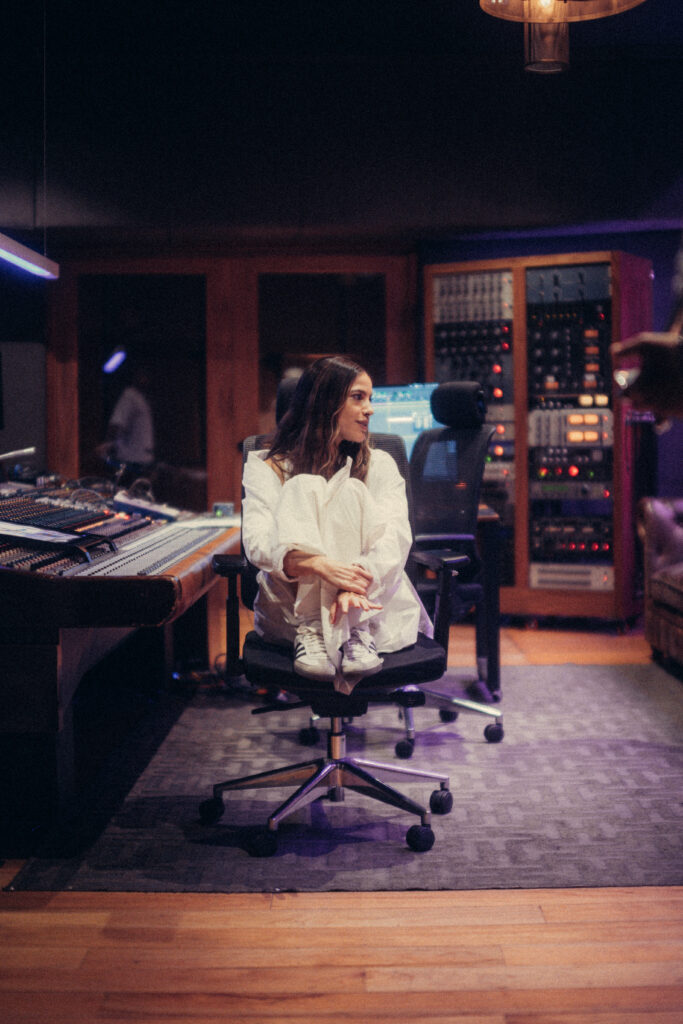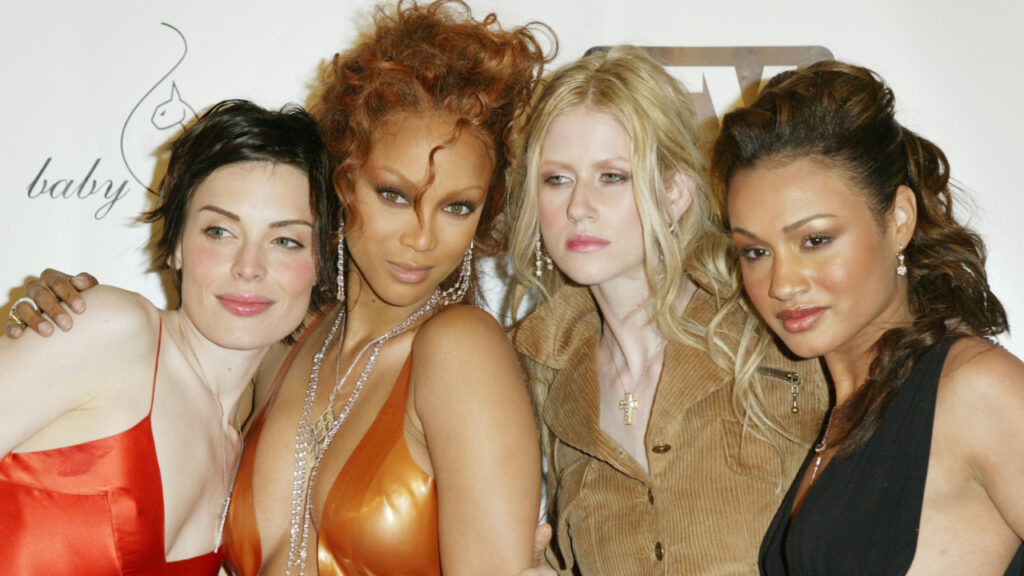
Debi Nova Turns Pain, Joy, and Memory Into Song on “Todo Puede Convertirse en Canción”
When Costa Rican singer-songwriter Debi Nova sat down to write the last track of her new album, Brindo, she found herself facing a memory she had buried for two decades. For the first time, she was ready to transform it.
“I was writing that song about something that happened to me 20 years ago—something I had never been able to talk about, let alone write a song about,” she told FIERCE. “But when the moment finally came, it became evident to me that music is very powerful and that it can transform things.” That revelation gave shape to her new record’s title, Todo Puede Convertirse en Canción.
The album, released last July, arrives as Nova’s rawest work yet. It follows her introspective EP Dar Vida, and it finds her reclaiming toxic relationships, making space for healing, and creating from vulnerability.
Motherhood opened the door to releasing old wounds
When asked about writing openly about abuse and toxic relationships, Nova explained that becoming a mother shifted her ties to the past.
“There wasn’t a specific moment or thing that happened. But I definitely think these songs found their way out right now because I became a mother,” she said. “I want to release it and let it go, so I don’t pass it on to her.”
That clarity comes through in her lyrics and in her delivery. On Holograma, a song she described as particularly raw, she allowed herself to lean into discomfort. “I purposely put it in a key that was a little bit uncomfortable because the song is uncomfortable,” she recalled. “It was so powerful I had to stop many times just to breathe and cry.”

Debi Nova brings bolero grit and street energy into her sound
Though many of the songs honor traditional arrangements, Nova didn’t shy away from injecting a grittier energy when the music demanded it. “As a fanatic of this music, I can sometimes get purist because for me some versions are just untouchable,” she said. “Others, I feel, may just need a less polished version or just a new approach that fits well with the message of the song for it to go somewhere that feels new.”
Her ability to strike a balance between reverence and rebellion has defined much of her career. “Earlier in my career, I made a conscious decision that I would make the music that I wanted to make, and write the lyrics that I wanted to write,” she said. “That, of course, has meant that it’s really hard because it’s not mainstream, and it’s a little bit against the grain. But it feels good to own my decisions, and it definitely feels good to write from the heart.”

“Círculos 3:33” and the link between music and collective healing
Outside the studio, Nova is the founder of Círculos 3:33, a platform and podcast created to support and empower women. For her, the connection between the women’s circles she leads and the songs she writes is seamless.
“I think music is one of the most powerful tools we have for healing, and it’s because it speaks to our bodies,” she said. “When we do Círculos de Mujeres, and I take out the guitar and I sing a song, it binds us in a very special way, because it goes deeper than just words, and we’re able to feel together.”
That philosophy extends into how she views her new record. While Latin pop has often romanticized women’s pain, Todo Puede Convertirse en Canción reframes it through honesty and power.

Debi Nova reflects on her younger self
With six albums behind her, Nova also reflected on what her younger self might think if she could hear this work. “First of all, she’d say, ‘Girlllllll… sixth album? We’re doing good!” she laughed. “Because just making one album was a big dream for me growing up. So knowing that we’re six albums deep would be something that would make her very happy.”
She added that she thinks that teenage girl in Costa Rica would be “pleasantly surprised” by all she’s discovered. And, just like her listeners today, she believes her younger self would love it.




